The Biden administration recently announced arrangements for Taiwan’s participation in the Summit for Democracy, which will be held virtually December 9-10. This was not an easy call. The issue was not whether Taiwan has a genuine democracy; it does. The island’s leaders and much of its public wanted very much to participate and share Taiwan’s experiences as a thriving democracy. The problem was the government of the People’s Republic of China (PRC), which has long sought to exclude Taiwan from the international system and multilateral events like the summit. The Biden administration appears to have threaded the needle just right, affording Taiwan the dignity it deserves in the process.
TAIWAN’S DEMOCRATIC EVOLUTION
In the late 1940s, the Republic of China government led by Chiang Kai-shek and his Nationalist Party (KMT) relocated to Taiwan after being defeated by Mao Zedong’s communists in a civil war. For the next four decades, the Taiwan population lived under a tough, authoritarian system that suspended civil and political rights, allowed elections mostly at the local level only, and maintained a monopoly of power. Although Taiwan became an economic success story, its political development was stunted.
That changed in the late 1980s, for a variety of reasons. The leader at that time, Chiang Ching-kuo (Chiang Kai-shek’s son) made a firm decision to bring democracy to Taiwan. The PRC had begun its program of economic reform and Chiang wanted to keep ahead by doing political reform. He also probably realized democratization was his best way of sustaining American support and protection.
But there were other reasons. A political opposition had grown up, which in difficult circumstances exerted pressure on the government to undertake reform. A middle class had emerged that sought more political freedoms. And there was some pressure from the U.S. Congress.
Chiang Ching-kuo began the democratic transition in 1986, two years before he died. His successor, Lee Teng-hui, completed the process. The first popular elections for the entire legislature were held in 1992. The first popular election for president occurred in 1996.
As one of us (Bush) described in his recent book, “Difficult Choices,” several factors made this transition remarkable. First, it was basically peaceful. Second, it occurred gradually. Third, under Lee’s leadership, an ad hoc, centrist coalition of moderates of the ruling party, the KMT, and the primary opposition party, the Democratic Progressive Party (DPP), in effect negotiated the scope and pace of change. Taiwan thus became the poster child of the “third wave” of democratization, all the more impressive because it occurred at the same time as the tragedy of Tiananmen Square and its repressive aftermath was unfolding in the PRC.
China was relevant to Taiwan’s democratization in a couple of different ways. On the one hand, the PRC government asserts that Taiwan is a part of China and that the two sides of the Taiwan Strait should unify. In 1981, it proposed a formula for doing that, known as “one country, two systems,” the same approach that was applied to Hong Kong. Beijing’s offer was unappealing, in part because many on Taiwan were anti-communist by ideology. In addition, “one country, two systems” offered partial democracy at best, and Taiwan was quickly moving to full democracy. One result of Taiwan’s democratic transition was that the island’s public would have a say in whether to accept any agreement that might be negotiated between leaders in Beijing and leaders in Taipei.
Democratization also affected Taiwan’s relationship with the PRC because it unleashed a flood of ideas about Taiwan’s future. Most disturbing to Beijing was the dream of some in the DPP that Taiwan should be an independent country with no legal or political ties to China. President Lee (1988-2000) and his successor Chen Shui-bian (2000-2008), the island’s first DPP president, certainly played up Taiwan nationalism for political purposes, which PRC leaders perceived to be covert moves to independence. The rising cross-Strait tensions that arose as a result were of concern to the Clinton and George W. Bush administrations, who each worked to limit risks of an unwanted conflict.
Taiwan politics stabilized in 2008 with the election of the KMT’s Ma Ying-jeou, who believed that engaging China was better than provoking it. Both Ma and his successor, Tsai Ing-wen of the DPP, who was first elected in 2016, seem to have adjusted the positions of their political parties to the status quo preferences of the Taiwan population. Neither independence nor unification has much appeal with voters. China has alleged that Tsai is another closet independence advocate, but her record does not lend serious credence to such assertions. She was easily reelected in 2020.
MEASURING TAIWAN’S DEMOCRATIC PERFORMANCE TODAY
In some respects, Taiwan’s democracy deserves all the admiration it receives. Political rights are protected and vigorously exercised. Policy issues are intensely debated. Civil society is lively. Trust in election integrity is high. There have been three rotations of power between the KMT and the DPP.
On the other hand, there are problems: political corruption, polarization between the two political camps, the emergence of an occasionally destabilizing protest culture, and an increasing reliance on referendums to challenge government policy. In short, political forces have become very good at blocking what they do not like, but they find it difficult to forge compromises to enact what society needs.
Another challenge confronting Taiwan’s political system is Beijing’s multi-pronged campaign to influence decisions on Taiwan toward the mainland’s preference for peaceful integration. Such efforts often fall in the grey zone between peaceful exchange and actions that could invite conflict. Efforts that fall within this realm of coercion without violence include cyber campaigns, misinformation and disinformation efforts, illicit cash flows to political actors sympathetic to Beijing’s aims, military intimidation, preferential policies to attract Taiwan’s innovators and companies to relocate to the mainland, and attempts to isolate Taiwan diplomatically.
Viewed holistically, such efforts are intended to weaken the will of the Taiwan people. Beijing would prefer for Taiwan society to be divided. It seeks to compel the people of Taiwan to lose confidence in their ability to provide peace and prosperity for future generations. They also would like to call into question whether the United States remains committed to supporting Taiwan’s democratic development, i.e., whether Washington is willing to pay costs and accept risks in relations with Beijing to keep open a path to peaceful resolution of cross-Strait differences in a manner that reflects the will of the people in Taiwan.
THE BIDEN TEAM MAKES THE RIGHT CALL
These were the circumstances under which the Biden administration decided to include Taiwan in the Summit for Democracy. The administration faced a choice of whether to exclude Taiwan from the summit in service of seeking to stabilize relations with Beijing, or to invite Taipei’s participation, recognizing that Taiwan has meaningful contributions to offer.
At a more fundamental level, the Biden administration likely also concluded that its calls for Taiwan’s meaningful participation in the international community would ring hollow if it boxed Taiwan out of its own summit. Its decision to include Digital Minister Audrey Tang and Taiwan Representative to Washington Bi-Khim Hsiao builds on past precedent of Taiwan’s involvement in U.S.-organized coalition efforts. Taiwan officials previously have played active roles in U.S.-led coalitions to protect religious freedom and counter the Islamic State group, to name but two examples.
The combination of Tang and Hsiao to represent Taiwan is a smart choice. Tang is a subject-matter celebrity in the democratic world, given her innovative track-record leading Taiwan’s efforts to counter disinformation and misinformation. She and her team have built a rapid-response system to counter Beijing’s attempts to manipulate public discourse in Taiwan, often employing humor to expose the sources of malicious information. Hsiao is a longtime trusted advisor to President Tsai who has built strong relationships across the political spectrum in the United States. Together, they will be able to speak authoritatively on Taiwan’s behalf and offer meaningful contributions to the summit’s objectives of defending against authoritarianism, fighting corruption, and promoting respect for human rights.
Even as Beijing can be counted on to object to Taiwan’s participation in the summit and cry foul at America’s emboldening of “Taiwan independence forces,” Chinese officials likely will frame their opposition to the summit in broader terms than just Taiwan’s participation. For example, in a joint op-ed, the Chinese and Russian ambassadors to the United States cast the summit as an attempt by Washington to split the world into blocs. They argued that the U.S. had no standing to judge other countries’ governance systems and asserted that effective governance should be measured by whether it “brings about economic development, social stability and progress, and better lives for the people.”
There is a fair debate to be had over whether America’s hosting of the summit and its choices on whom to invite and exclude will do more to aid or undermine its broader global objectives. Leaving aside broader questions, the Biden administration made a sound decision to include Taiwan and to invite Minister Tang and Representative Hsiao to speak to Taiwan’s experiences.
The Brookings Institution is committed to quality, independence, and impact.
We are supported by a diverse array of funders. In line with our values and policies, each Brookings publication represents the sole views of its author(s).

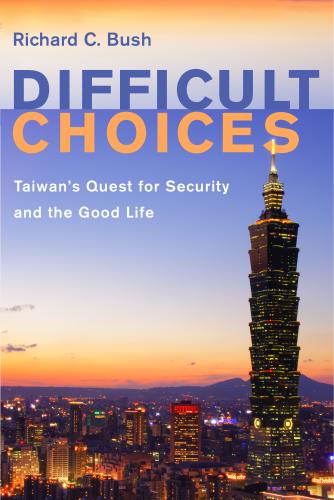
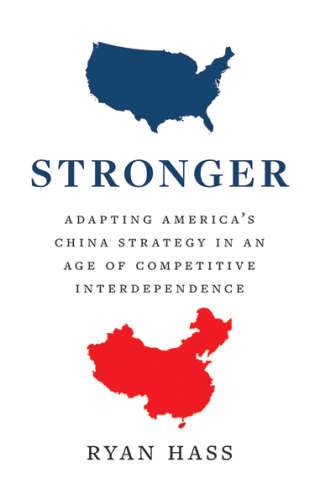
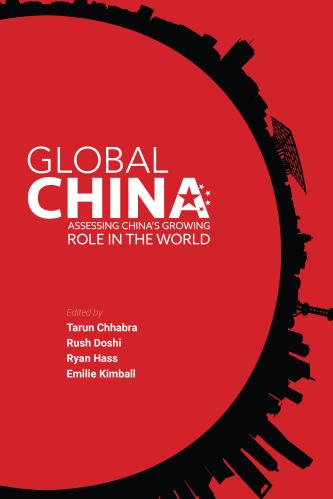
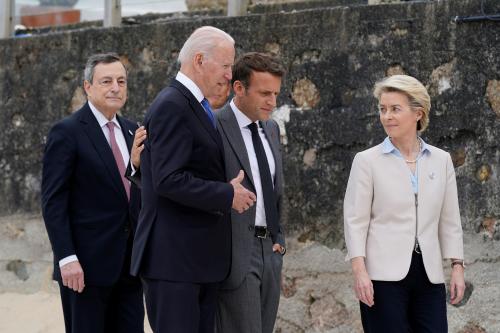
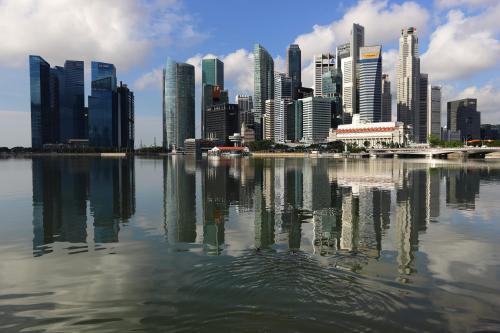
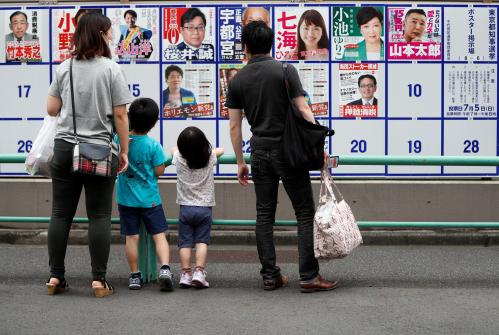



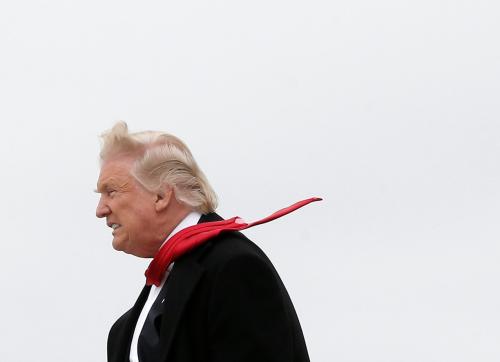
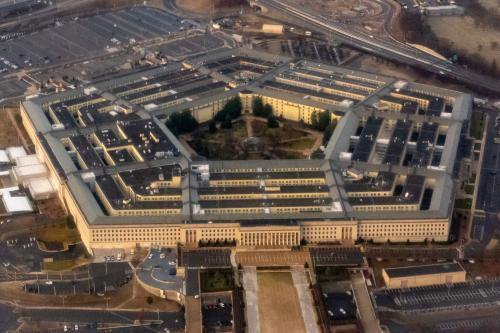
Commentary
The Biden administration is right to include Taiwan in the Summit for Democracy
December 1, 2021